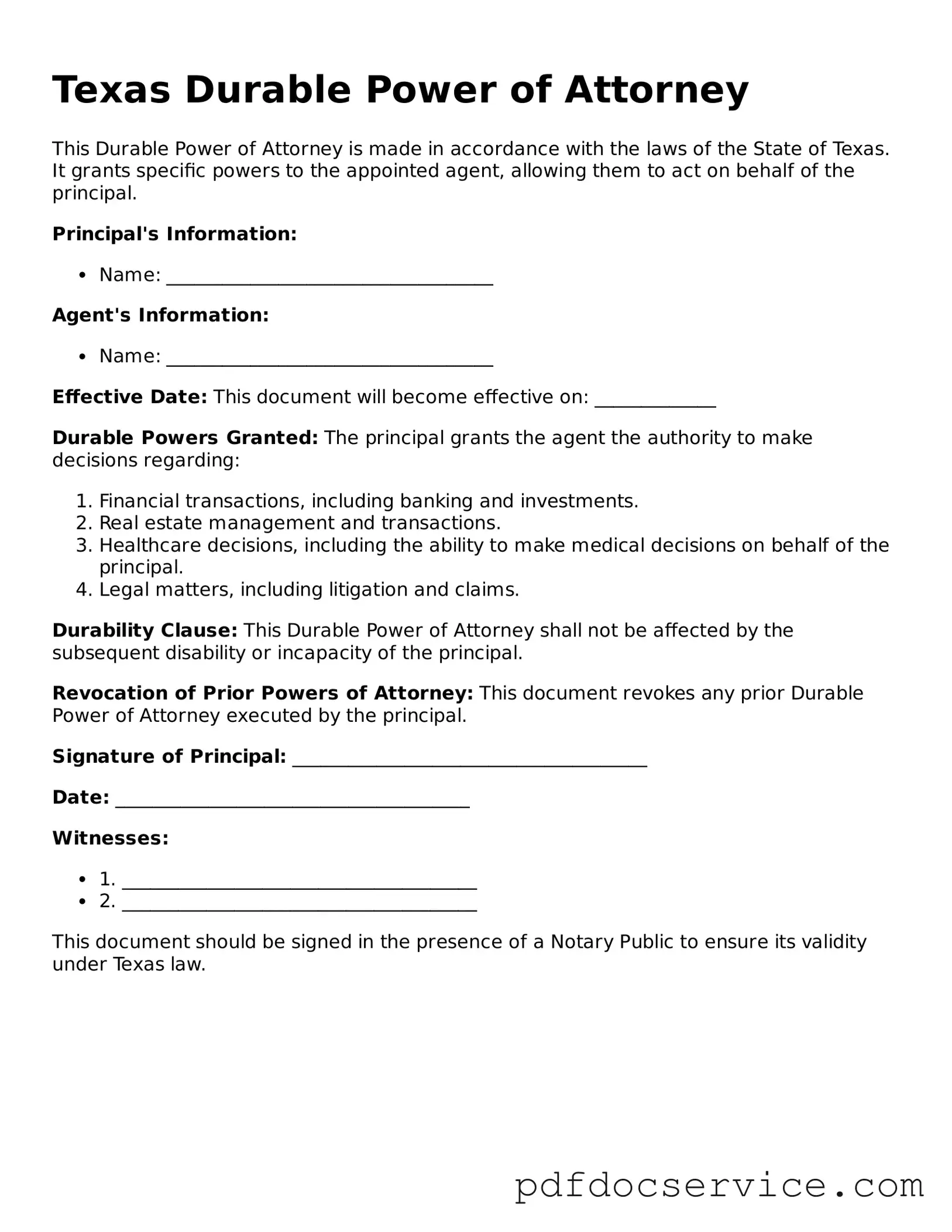What is a Texas Durable Power of Attorney?
A Texas Durable Power of Attorney is a legal document that allows you to appoint someone to act on your behalf in financial and legal matters. This document remains effective even if you become incapacitated, ensuring that your affairs can be managed according to your wishes.
Who can be appointed as an agent?
You can choose any adult as your agent, provided they are mentally competent and willing to act in your best interest. It is common to appoint a trusted family member, friend, or professional advisor. However, it is crucial to discuss your decision with the person you intend to appoint, ensuring they understand the responsibilities involved.
What powers can be granted through this document?
The Texas Durable Power of Attorney can grant a wide range of powers, including:
-
Managing bank accounts
-
Buying or selling property
-
Handling tax matters
-
Making investment decisions
-
Accessing safe deposit boxes
It’s essential to specify the powers you wish to grant clearly, as this will guide your agent in their decision-making process.
Does the Durable Power of Attorney need to be notarized?
Yes, for the Texas Durable Power of Attorney to be legally valid, it must be signed in the presence of a notary public. Additionally, it is advisable to have two witnesses sign the document to further validate its authenticity, although this is not a strict requirement.
When does the Durable Power of Attorney become effective?
The Durable Power of Attorney can become effective immediately upon signing or can be set to activate only under certain conditions, such as your incapacitation. If you choose the latter, it is essential to clearly outline the circumstances under which your agent can begin acting on your behalf.
Can I revoke the Durable Power of Attorney?
Yes, you can revoke the Durable Power of Attorney at any time as long as you are mentally competent. To do so, you should create a written revocation document and notify your agent and any relevant financial institutions. This ensures that your previous agent no longer has authority to act on your behalf.
What happens if I do not have a Durable Power of Attorney?
If you do not have a Durable Power of Attorney and become incapacitated, the court may appoint a guardian to manage your affairs. This process can be lengthy and costly, often leading to decisions that may not align with your preferences. Establishing a Durable Power of Attorney allows you to maintain control over your financial and legal matters.
Is a Texas Durable Power of Attorney valid in other states?
A Texas Durable Power of Attorney is generally recognized in other states, but it is wise to check the specific laws of the state where it will be used. Some states may have different requirements or forms. If you plan to move or have property in another state, consider consulting with a local attorney to ensure your document meets all necessary criteria.

